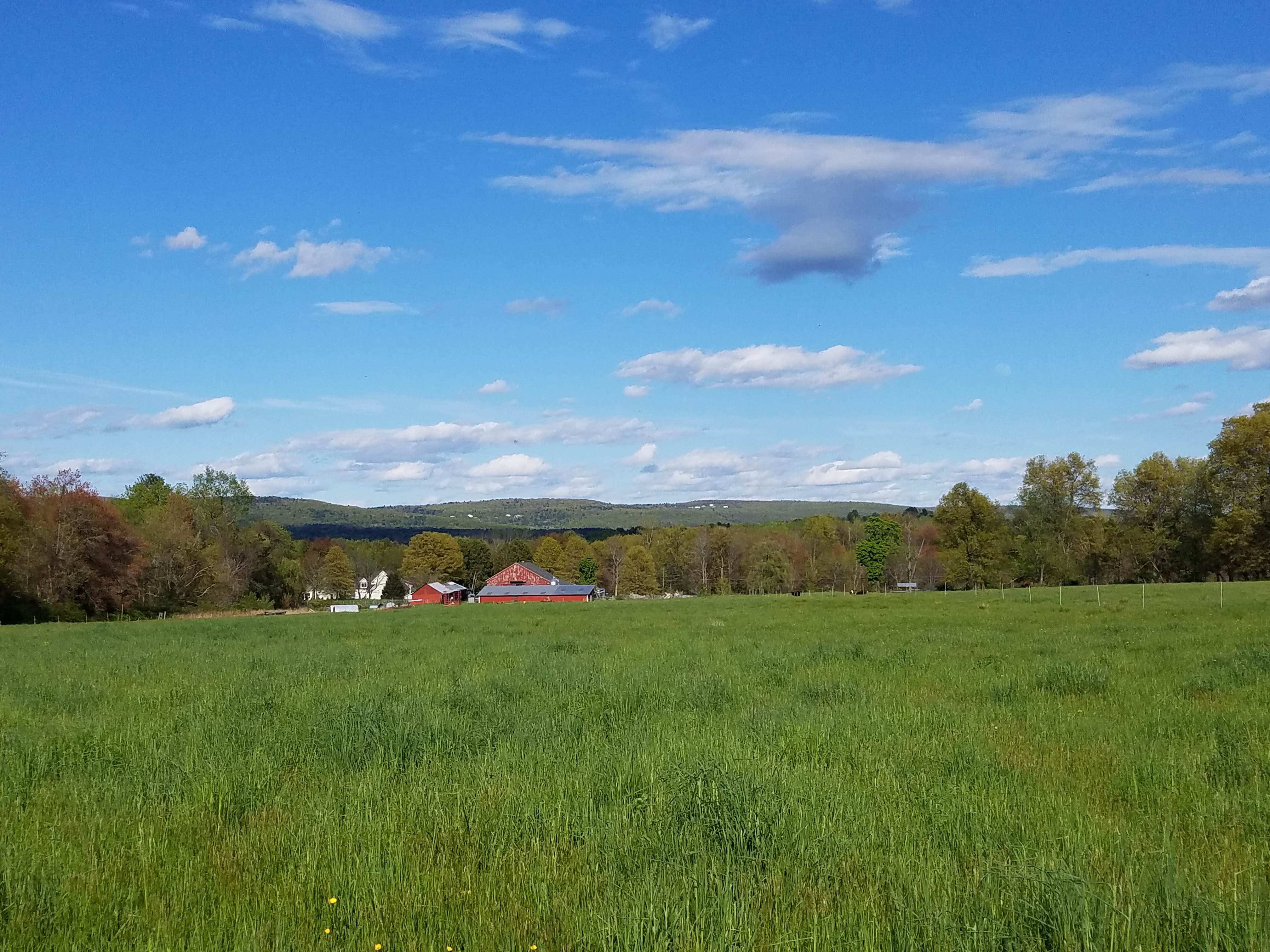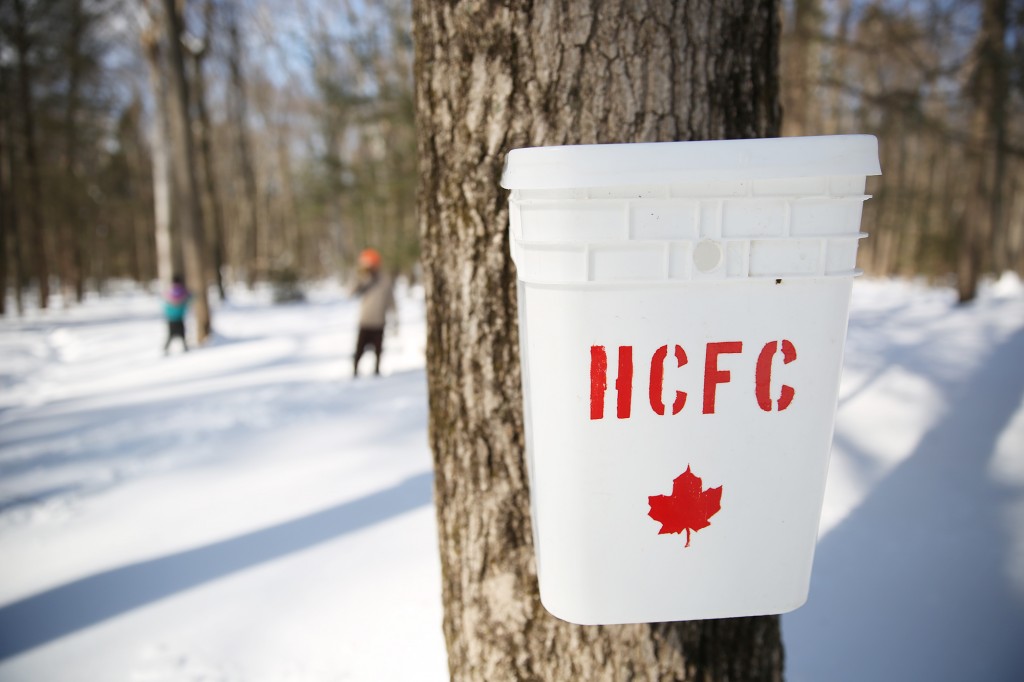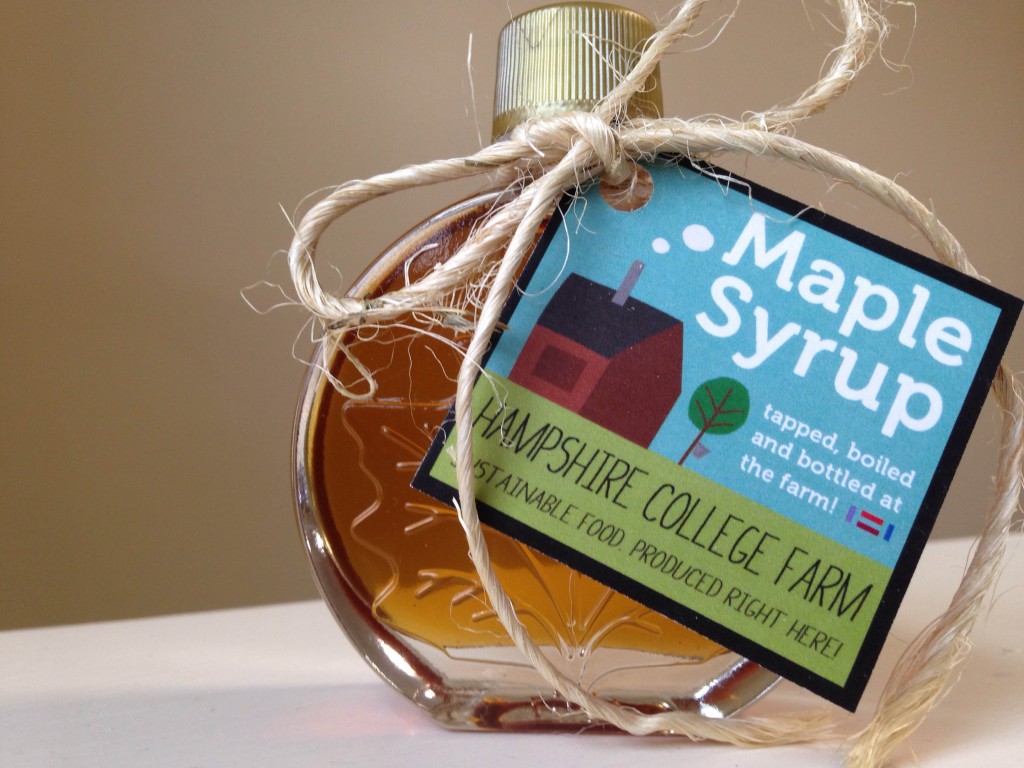Hampshire College farmers Jason Dragon and Pete Solis led the maple sugaring efforts at Hampshire College this spring. With the help of student workers, they collected 1100 gallons of maple sap from 150 trees across campus, which they boiled down to 20 gallons of delicious maple syrup. Read a firsthand account of this age-old New England tradition from Farmer Jason: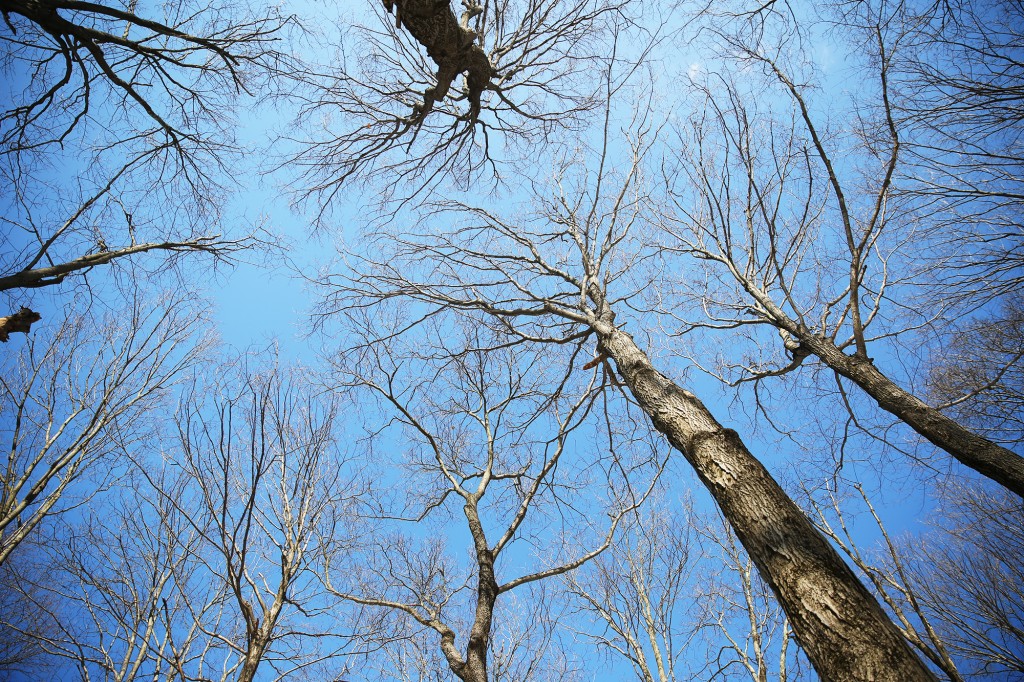
In late February, in the midst of a long brutal winter, a handful of students joined Pete and me to help tap the sugar maples out by the tennis courts. As we plodded out into the sugar bush, the snow for most of us was above our knees. What struck me most was the very stillness and quiet of winter. Nothing rustled in the breeze, no birds sang, all that could be heard was the occasional creak of the steady trees being pushed to sway in the wind. I couldn’t help find the romanticism in the sound of the hammers driving the spiles into the maples. As I was ready for winter to be over, that crisp metal on metal ding sounded to me like the harbinger of spring’s arrival.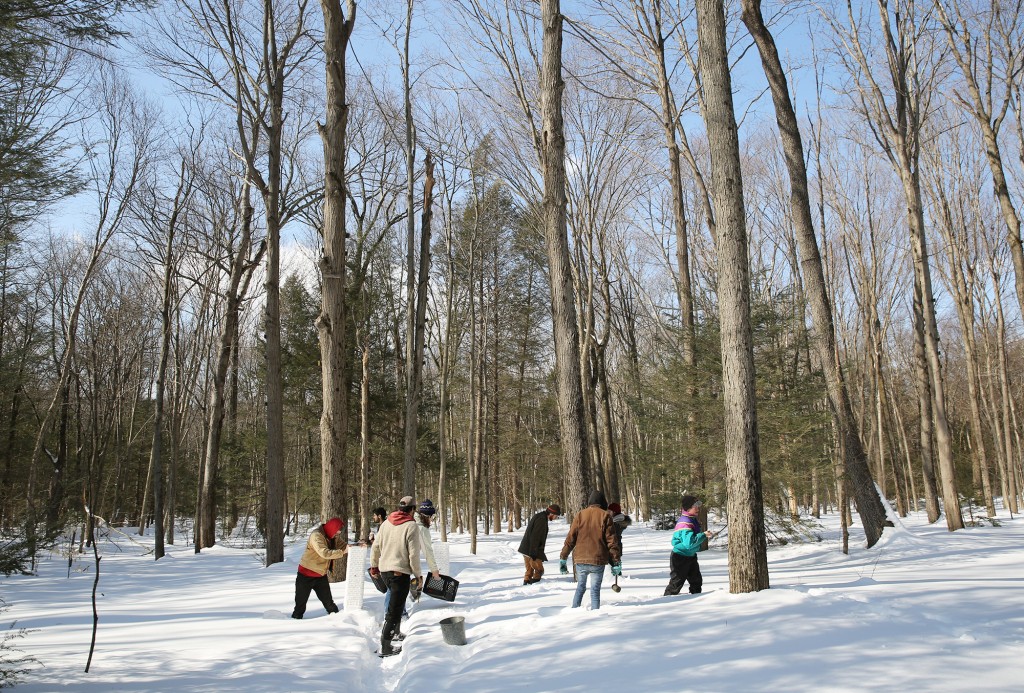
And then nothing happened! For what seemed like weeks, the long cold winter held on and my visions of spring were delayed. The roots held onto their sap, waiting patiently for when the days would gently creep above freezing so that it would finally flow. Although restless and disappointed, I have learned that most agricultural practices have some element where patience is required. It is like always having your feet at the ready in the start blocks of a sprint. You hold that position waiting for the right conditions and, when the signal is given to begin, it usually is a race that becomes your focus and your life for its entire duration. In this instance the signal was another amazing sound, the steady tap-tap of sap falling into the buckets waiting to be collected, boiled, and turned into maple syrup.
Turn up your volume to hear the sweet sound of spring:
I cannot think of anything more quintessentially New England then sugaring season. It is a tradition that goes back long before the arrival of the Europeans. There are so many legends regarding how it was discovered. My favorite is really the simplest. A man throws a hatchet into a tree and sap flows, he discovers that it is sweet water and collects it and brings it back home. At some point this sap is confused for water and venison is boiled in it to make a stew. The end result: a deliciously sweet venison stew.
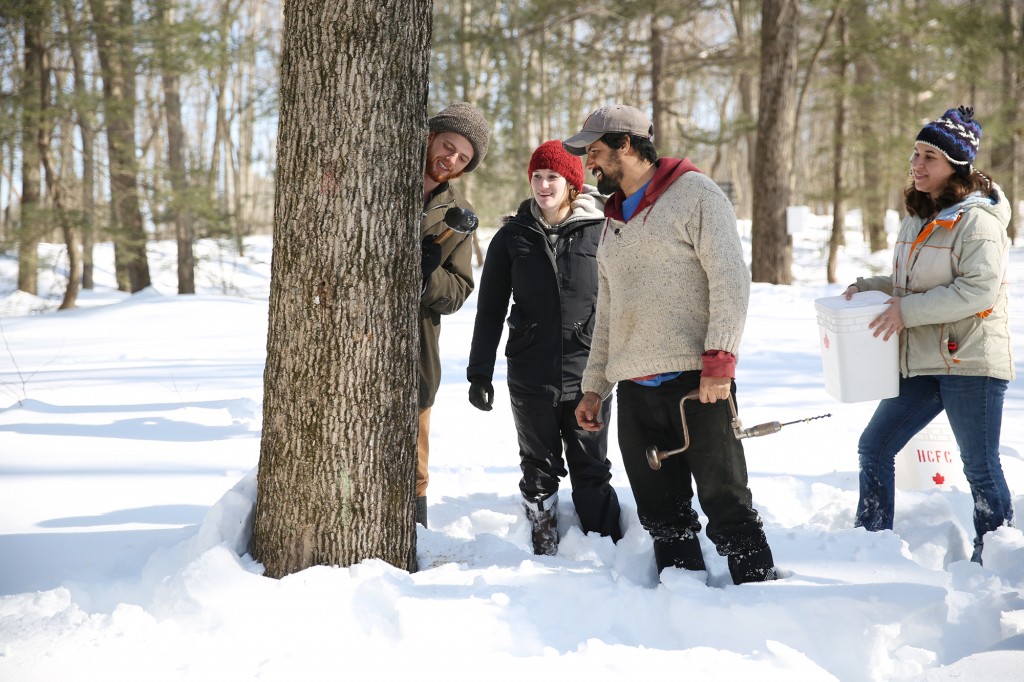
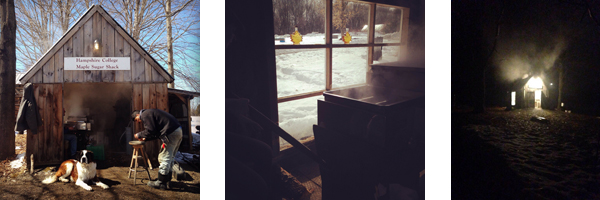
Top: Farmer Jason and students drill spiles into maple trees. Left: Once the sap started to flow, the sugarshack became a second home for farm staff and farm dogs who had to watch over the wood-fired boil for long stretches. Middle: Steam rising from the evaporator. Right: The boil often lasted late into the night.
With the help of a dedicated and enthusiastic group of students, we collected the sap and had several late nights in the sugar shack on the farm. During these sessions, we learned that poached eggs in boiling sap are delicious, hot dogs are significantly better when glazed with maple syrup, and the time required to keep the fires roiling and the sap boiling is significant. Often times we would get the fire started first thing in the morning around 8:30AM and we would still be boiling down sap until 11PM. I came to a rough estimate that around 100 gallons of sap would boil off in around 3 to 4 hours. This was a slow sap year because of the deep cold but that still left us with roughly 1100 gallons of sap to boil. I will let you figure out how many hours in the sugar shack that was!
Since winter held on so long, the sugaring season was short. We still made a fair amount of syrup here at the Hampshire College Farm. Our primary goal is to expose our students to this New England tradition, so that those willing and curious can see the whole season and experience the process from start to finish. Our secondary goal is to have a finished product that we can sell on campus for the enjoyment of students, staff, and faculty. Here at Hampshire we were able to accomplish our goals. However, the changing weather patterns that kept us in the arctic air left some of the larger sugar shacks in the area without enough sap to even turn on their evaporators. And, if they could turn on their evaporators, they did not have the sap supply to be able to run them continuously for efficient boiling. These unexpected weather patterns drive the cost of maple syrup. The many uncertainties that threaten our maple sugaring traditions make me prefer to think back to tapping in February, on a cold still day, and pretend that those hammers were ringing in the arrival of spring.
